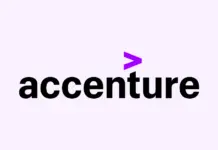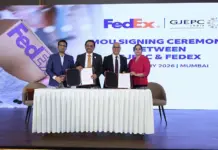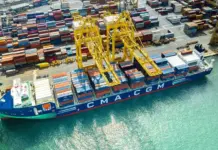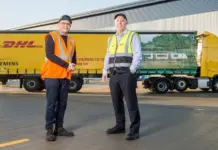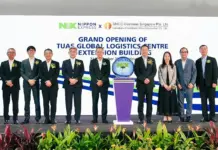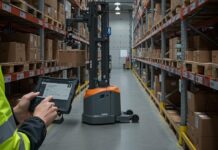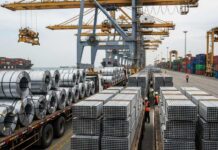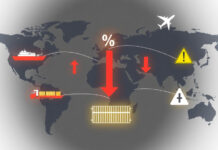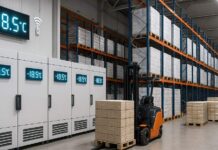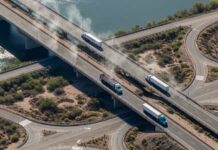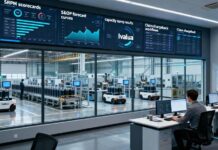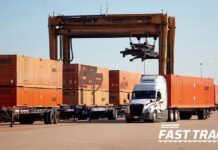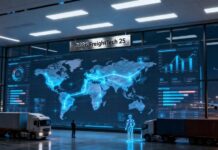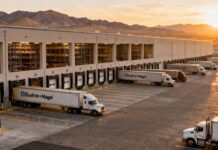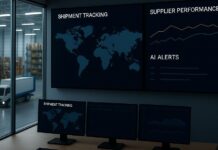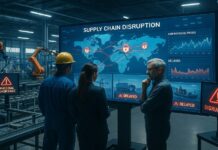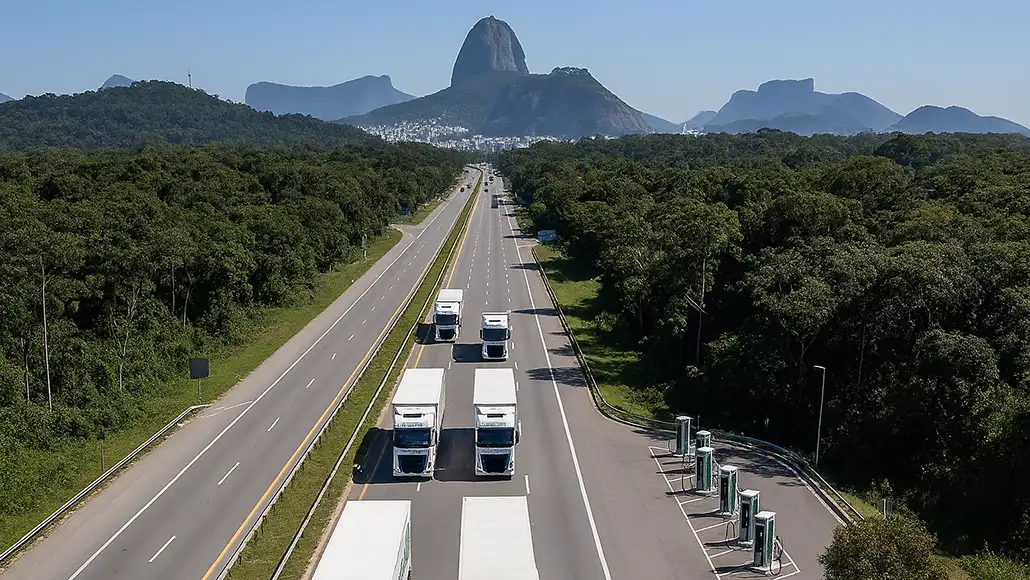Traton’s e-Dutra corridor is positioning Brazil to rethink how major logistics lanes can operate. A new zero-emissions freight route was introduced at COP30; it has been launched by Traton Group together with Volkswagen Truck & Bus and several logistics and infrastructure partners. The transport link connecting Rio de Janeiro and São Paulo is designed to demonstrate a scalable model for sustainable supply chain operations. Presented in Belém as part of the Global Green Road Corridors initiative, the project marks one of the country’s most significant private-sector efforts to decarbonize freight transport.
A defining feature of Traton’s e-Dutra corridor is its demand-aggregation approach, built to reduce the investment risk associated with installing large-scale charging infrastructure. The model aims to resolve a longstanding obstacle in freight electrification: whether operators should commit to electric fleets before charging networks exist or wait for infrastructure to be built first. By coordinating commitments across manufacturers, logistics operators and infrastructure firms, the project aims to create reliable demand that supports upfront capital spending. Andreas Follér, Chief Sustainability Officer at Traton Group, said the corridor shows concrete movement rather than distant ambition.
“Electrification is the future of transportation,” says Follér. “But we must be clear-eyed: the road ahead is long. That’s why e-Dutra matters.” He added, “We’re not showing up at COP30 in Belém with promises: we’re showing up with progress. e-Dutra isn’t just a project; it proves that transformation is possible when we work together.”
Early activity on the route indicates how the concept translates into day-to-day supply chain use. Volkswagen Truck & Bus, collaborating with LOTS Group, has completed the first electric-truck trip along the corridor using existing charging points. Other major operators, including DHL Supply Chain, Amazon, and Scania, have begun electric freight runs on the lane as well. These commercial movements provide essential data on vehicle performance, charging needs, and operational gaps along this high-volume trade route, helping shape the rollout of a broader charging network.
“We are committed to developing sustainable transport solutions for everyone,” explains Roberto Cortes, President and CEO of Volkswagen Truck & Bus. “This is why we joined the coalition as an initiator: to support building a smarter mobility for the next generation. And our partnership with different stakeholders certainly harnesses the collective power that will make a difference.”
Traton’s e-Dutra corridor is also drawing attention beyond Brazil. The collaboration model, bringing together truck manufacturers, supply chain operators, government agencies and global partners, could provide a workable template for regions facing similar infrastructure challenges. Organizations such as Smart Freight Centre, CALSTART, the Climate Pledge, the C40 Cities’ Laneshift initiative, the World Business Council for Sustainable Development, and the International Council on Clean Transportation are offering technical support grounded in global zero-emissions freight experience. For countries seeking to electrify heavy-duty transport while managing high infrastructure costs, the lessons emerging from the traffic-intensive route between Rio de Janeiro and São Paulo may carry broader relevance. The project’s progression will be closely watched by logistics leaders evaluating how to transition their freight corridors toward low-carbon operations.


